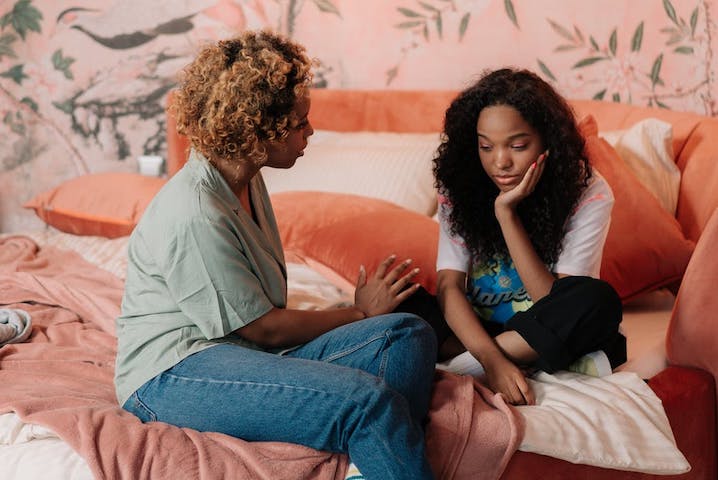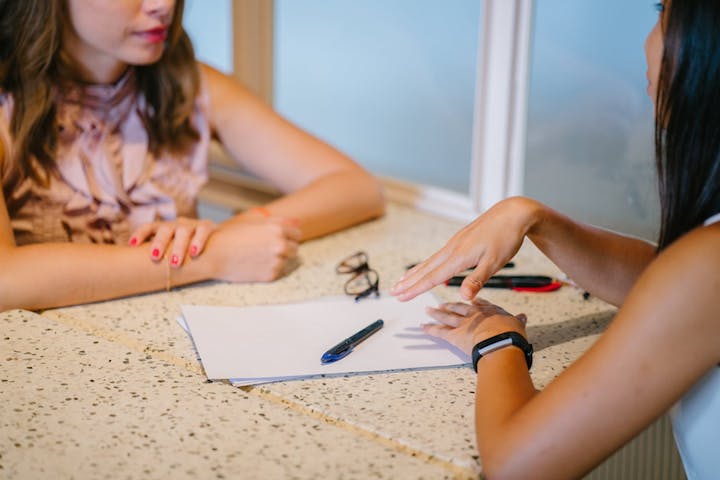The world couldn’t function without friendship. We all need friends to sustain us, love us, support us, and even improve our physical and mental health!
But there’s another kind of friendship. It usually starts like any other, but eventually, it turns into a relationship that’s more give than take. This unhealthy pattern can leave you feeling drained and beaten down, and can even cause your self-esteem to take a hit. So how do we spot these toxic friends? And what do we do once we have?
We’ve put together four ways to discern these relationships – and four tips that will help you navigate this tricky journey.
1. They might put themselves first.
Have you ever had a friend who immediately starts telling you about their day, their stressors, and their achievements? Later, do you leave the conversation realizing you were never given a chance to do the same, just like almost every other time?
These are the friends who often come back into your life when they need something from you, but they never find the time to repay the favor. These one-sided relationships can put you on a fast track to burnout.
2. They make you feel small.
Many of us like to poke fun and joke around – it’s one of the best parts of friendship! But when playful jests turn into demeaning jabs, that’s a different level of “poking fun.”
Friends are there to provide support, advice when solicited, and constructive criticism when they know we need it. But they are not there to insist that we make changes to who we are or to make dismissive comments about what makes us us.
3. They increase your anxiety.
The best friendships are those that make us excited to spend time together and leave us feeling uplifted. Good partnerships have been proven to decrease our levels of anxiety, and some studies have shown that friendship lessens our fears about the challenges in our lives.
On the other hand, anticipating spending time with toxic friends often makes us feel uneasy, unnerved, and unsettled – particularly if it’s someone who often reacts strongly over the smallest things.
4. They make you feel lonely.
Our friends should never leave us feeling more lonely. They are there to offer us connection and companionship, and one of the key pillars of friendship is support. They are there to soften life’s blows, offer an available shoulder, create a safe space, and simply listen.
Toxic relationships often do the opposite. They monopolize our time when they need us, causing our other relationships to suffer, and often fail to be there for us in our own time of need.
So what do we do about it?
1. It’s OK to offer grace.
Friendship is all about understanding and second chances. Approach them with honesty and try to find common ground in the areas you’re struggling to navigate.
Take ownership where you can and share your own needs. Help them understand your point of view and begin rebuilding a healthier friendship.
2. Set boundaries.
If your attempt at showing grace doesn’t bear fruit, try drawing a line in the sand and setting boundaries. Share what you need out of the relationship and what they can do to make you feel safer and more fulfilled.
Stand up for yourself in situations when they make you feel less than and try to uplift the friendship from this newfound place of confidence.
3. Ask for space.
Beyond that, it could be time to take a little breather. Depending on the relationship, you can meet in person or write them a note explaining your reasons. Then take some space. Give the relationship time to breathe and give the friend a moment to consider how they might have hurt you.
4. Seek support.
Lean on other friends to help you stay strong in your decision and to offer you a shoulder to cry on, if needed, as you work through it.
Dig in to these positive friendships or meet with a therapist to get the support you need. In the meantime, remind yourself who you are outside of that toxic relationship and build yourself back up.
Know yourself and your boundaries so you can read these signs in the future and know exactly how to respond from the get-go.
Share these tips with a friend who might need to hear them.
Want to be happier in just 5 minutes a day? Sign up for Morning Smile and join over 455,000+ people who start each day with good news.












